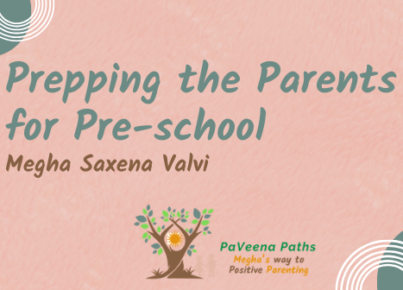Had a very regular morning today. After sending both the kids to school, I sat down to work. While going through the news, I read about “17 year old committed suicide in Kota.” As I read further, I found out that in the first 20 days alone of year 2025, 4 students in Kota have taken their lives. My heart broke, and I couldn’t help but wonder why these students are driven to such extremes.
I was researching about such news, I tumbled across a story about an “8-year-old boy stuck in an elevator in Faridabad, who stayed calm.” Happened sometime in 2023. This story felt like a ray of hope, bringing a little happiness and peace to my heart. It showed that somewhere, parenting is being done right. When highlighted, such stories can guide and inspire other parents too.
Both these incidents reflect two sides of the parent-child relationship.
My heart aches when I think about what must have been going on in the minds of these 4 students. They must have felt so helpless and lost, with no way out other than ending their lives. They surely must have thought about their parents. Maybe they even tried reaching out, or maybe they didn’t. Perhaps they were trying to avoid their parents’ disappointment or rejection. We will never truly know.
Here, I mention only parents—not the coaching institutes, peers, or society as a whole—because, at the core, every child seeks attention, acceptance, assurance, approval, and acknowledgment from their parents.
Yes, others do play a role. But as long as parents provide unconditional love and unwavering support, the rest doesn’t matter as much. And even if it does, parents are there to guide their child through it.
A simple “I am here for you” can work wonders throughout their lives.
This is probably what the father of that 8-year-old boy told him. He must have said, “If there’s ever a problem, don’t panic. Stay calm. I’ll be there for you. I’ll come and help you.”
That little boy must have felt scared and alone in the elevator and may have even cried. But he calmed down. Why? Because his father’s words stayed with him. He knew his parents were out there and that he didn’t need to worry. He knew he was cared for.
This heartwarming story teaches us such an important lesson. We, as parents, won’t always be physically with our kids, but our words and reassurance will stay with them. Sometimes, children can’t express their needs or struggles. It’s our job to notice their behavior, understand their unspoken words, and keep communicating with them.
A simple “I am here for you. I understand.” is all your child needs to hear.
Here are some tips that are easy to implement and can help ensure a healthy relationship with your child:
1) Hugs and Kisses
I always suggest this to all my clients. Showing affection through gestures like hugging, kissing, holding hands, patting on the back, stroking their hair, sitting shoulder to shoulder, or kissing them good morning and good night is incredibly impactful. Many parents don’t realize how important this is. These small acts of love play a crucial role in building a strong bond and attachment with your kids.
2) Listen Without Judging
Create an environment where your child feels safe to talk to you about anything—no matter the situation or problem. They should not fear being judged, criticized, ridiculed, or made fun of. Parents should be their safe space—the people who are always on their side.
3) Spend Quality Time
We all live in a time where our professional lives take up most of our time and energy. And yes, we work hard for our families. But if your work is causing you to lose your connection with your kids, it’s not worth it. Spending even a small amount of meaningful time with your children can make a big difference. Trust me!
4) Praise Efforts, Not Outcomes
Focus on what your child is doing right. Catch them in those moments and shower them with praise and appreciation. Follow the mantra: “What you praise, you increase.” Let your child know that it’s their hard work, sincerity, and dedication that make you proud and happy. That’s all you expect from them. Since results and outcomes are not in anyone’s hands, why worry about them?
5) Apologize and Admit Mistakes
Teach your children that making mistakes, taking wrong decisions, and failing are all normal and common experiences. Share your own stories of mistakes and failures. Show them that what matters is realizing your mistake and finding ways to fix it. The best way to teach this is by example—apologize when you’re wrong, make amends, and say sorry. Your children will learn how to handle mistakes by observing you, dear parents.
Driving our kids away, away enough that they are not able to reach out to you when they need. That you are not able to hold them when they are falling, is not what should ever happen. And it is really in our hands as parents to ensure that our children know how unconditionally we love them.
I end this note, with a hope that 2025 is the year where we break all the barriers of communication, develop harmonious inter-dependency, gain trust in the relationship that is of Parents and Children. May we never get to read such heartbreaking stories ever again.
Megha Saxena Valvi











